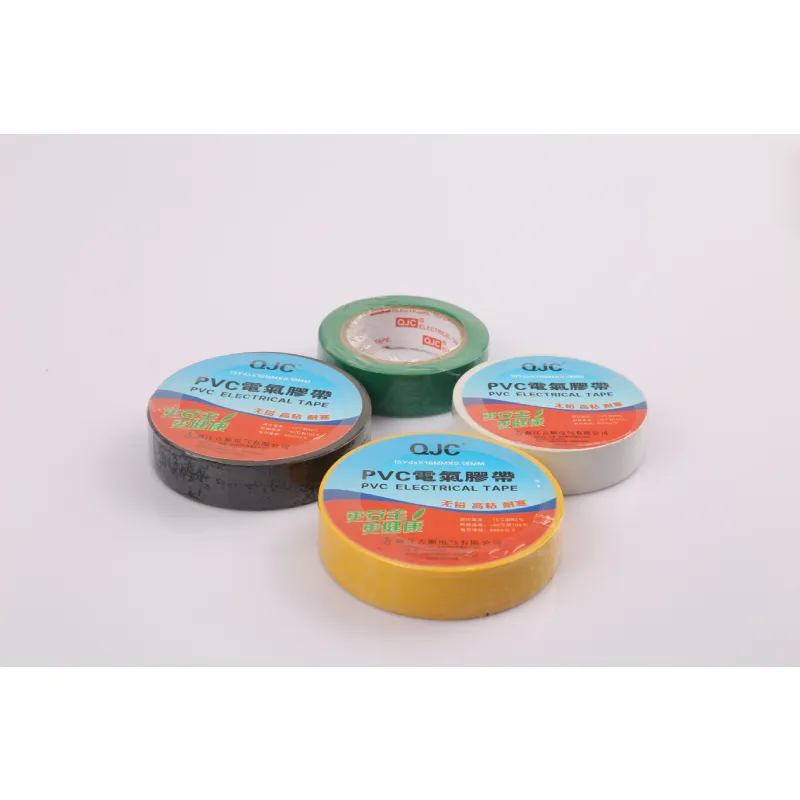The Role of Electrical PVC Tape Manufacturers in Industry
Introduction
Electrical PVC tape is an essential component in various industries, providing insulation, protection, and safety in electrical applications. The manufacturers of electrical PVC tape play a pivotal role in ensuring that the tape meets the rigorous standards required for effective performance. This article delves into the significance of electrical PVC tape manufacturers, the manufacturing process, and the key factors influencing the quality of their products.
Importance of Electrical PVC Tape
Electrical PVC tape is widely used in electrical installations for insulating wires, bundling cables, color coding, and ensuring safety in electrical systems. The properties of PVC, combined with its electrical insulation capabilities, make it the preferred choice for electricians and engineers. The tape is flexible, durable, and resistant to abrasion, oils, and moisture, making it suitable for both indoor and outdoor applications.
Manufacturers of electrical PVC tape contribute significantly to the safety and efficiency of electrical systems. By providing high-quality products, they help prevent electrical shocks, short circuits, and other hazards associated with faulty wiring. As industries increasingly rely on electrical systems, the demand for reliable insulation materials continues to grow, underscoring the importance of these manufacturers.
Manufacturing Process of Electrical PVC Tape
The production of electrical PVC tape involves several critical steps to ensure that the final product meets industry standards. The process typically begins with the selection of high-quality raw materials, primarily polyvinyl chloride (PVC), which is known for its excellent electrical insulation properties.
1. Compounding The PVC resin is mixed with various additives, including plasticizers, stabilizers, and colorants, to enhance its flexibility, durability, and performance. This compounding process is crucial, as it defines the physical properties of the tape.
electrical pvc tape manufacturers

2. Calendering The compounded material is then passed through a calendering machine, where it is rolled into thin sheets of uniform thickness. This process ensures that the tape maintains consistent quality throughout its length.
3. Coating and Adhesion After calendering, a specially formulated adhesive is applied to one side of the PVC film. The adhesive must be highly durable to withstand various environmental conditions while providing strong bonding capabilities.
4. Spooling and Packaging The coated PVC film is then wound onto rolls, ensuring that the tape is easy to use and store. Proper packaging is also essential to protect the tape from physical damage and environmental exposure before it reaches the end user.
Factors Influencing Quality
The quality of electrical PVC tape is influenced by various factors, including the choice of raw materials, manufacturing processes, and adherence to industry standards. Reputable manufacturers invest in research and development to innovate their products and meet evolving market requirements. Additionally, compliance with international quality standards such as ISO and ASTM is crucial for ensuring the safety and reliability of electrical PVC tape.
Furthermore, manufacturers must conduct rigorous testing of their products. This includes evaluating the tape's insulation resistance, adhesion strength, and resistance to environmental factors such as temperature changes, humidity, and UV exposure. Such testing introduces a layer of assurance for customers who rely on these products for safety in their electrical applications.
Conclusion
In conclusion, electrical PVC tape manufacturers play a vital role in the electrical industry by producing high-quality insulation materials that are essential for safety and efficiency. Their expertise in the manufacturing process and commitment to quality standards ensure that the products meet the needs of various applications. As technology continues to advance and industries evolve, the role of these manufacturers in providing reliable electrical solutions will only become more critical. Their contribution not only enhances the functionality of electrical systems but also promotes a safer working environment for everyone involved.
-
XIANGFAN Rubber Tape-Ultimate Solutions for All Your Insulation NeedsNewsJun.24,2025
-
XIANGFAN Rubber Tape-Protection for Industrial and Residential ApplicationsNewsJun.24,2025
-
XIANGFAN Rubber Tape: Superior Safety and Sealing for Demanding EnvironmentsNewsJun.24,2025
-
XIANGFAN Rubber Tape: Reliable Solutions for Every Electrical ChallengeNewsJun.24,2025
-
XIANGFAN Electrical & Industrial Tape: Powering Reliability Across IndustriesNewsJun.24,2025
-
XIANGFAN Electrical & Industrial Tape: Excellence in Every ApplicationNewsJun.24,2025
